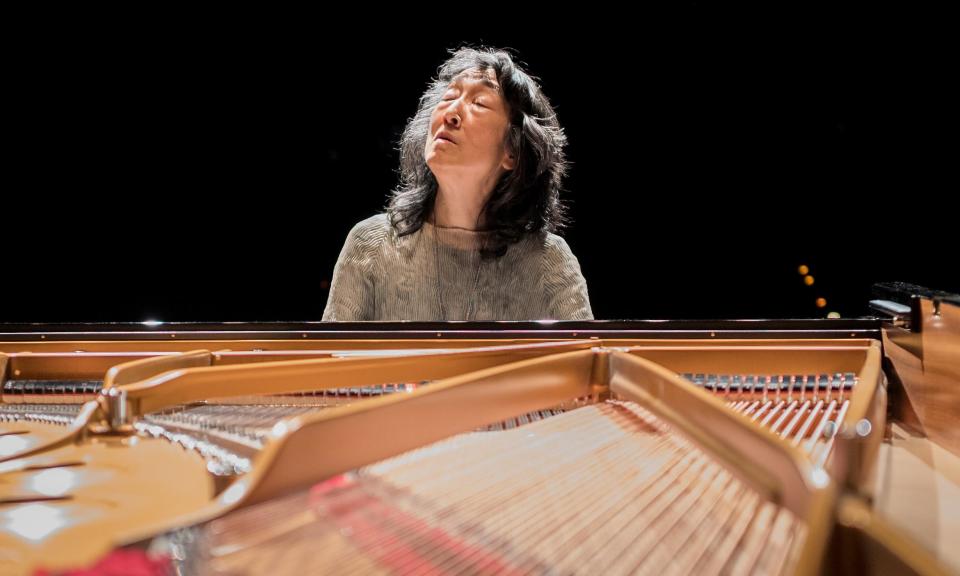Mitsuko Uchida review – bringing Mozartean finesse to Beethoven

Last year, Mitsuko Uchida’s recording of Beethoven’s Diabelli Variations, Op 120, was widely acclaimed, nominated for a Grammy and winning the piano category in the gramophone award. Now, coming back to Beethoven’s last three piano sonatas, Ops 109, 110 and 111, a summation of his endeavours in this form, Uchida seems to have acquired new wisdoms from her Diabelli experience, revelling here in the sonatas’ fluctuations between extremes, the movement from calm to ferocious energy and, in the return to tranquillity, finding resolution.
Pianists usually play these three sonatas in a single sequence but, in this instance, Uchida played the first two as a pair, with barely a break and no applause between them. Then, following a normal interval – not entirely normal because people were slightly dazed by the monumentality of it all – came Op 111 with its two massive movements – Beethoven breaking even further with convention – offering a perfect counterweight to the previous two.
The unfolding drama of each sonata was carefully set out, with great clarity of line, crucial to the fugal sections of Ops 109 and 110, and Uchida brought an often Mozartean finesse to small details while yet sustaining the long-term overall structure. There was never any sense of bombast, but neither was there any shirking from the climactic moments, with ample indulgence of the virtuosic flights of fancy.
In these sonatas, the recurring appearance of the instruction espressivo underlines Beethoven’s fundamental concern with expressivity, innermost feeling and singing tone: Uchida’s profound understanding of the composer’s intentions was implicit. Her use of the intimate St George’s acoustic was equally instinctive and, while the audience is necessarily part of the performing equation, there were times when the feeling was of a privileged eavesdropping on a personal communing with the spirit of Beethoven.
Perhaps the most satisfying aspect was the deeply meditative quality with which Uchida invested the slowest, most lyrical passages: the theme of the final movement of Op 109 and its magical reappearance following the six variations was a case in point, while the second movement of Op 111 moved towards an ultimate serenity. With its final pianissimo, there was a long and reverential silence.
At the Royal Festival Hall on 5 April

 Yahoo News
Yahoo News 